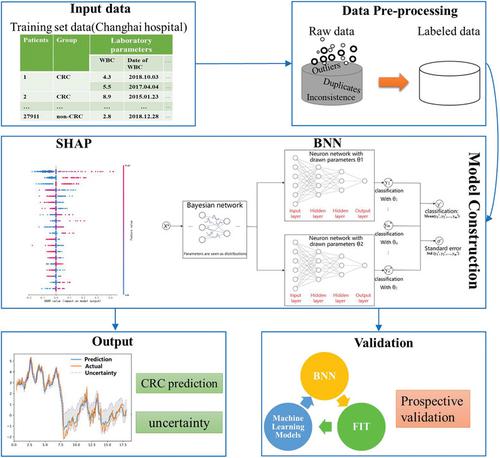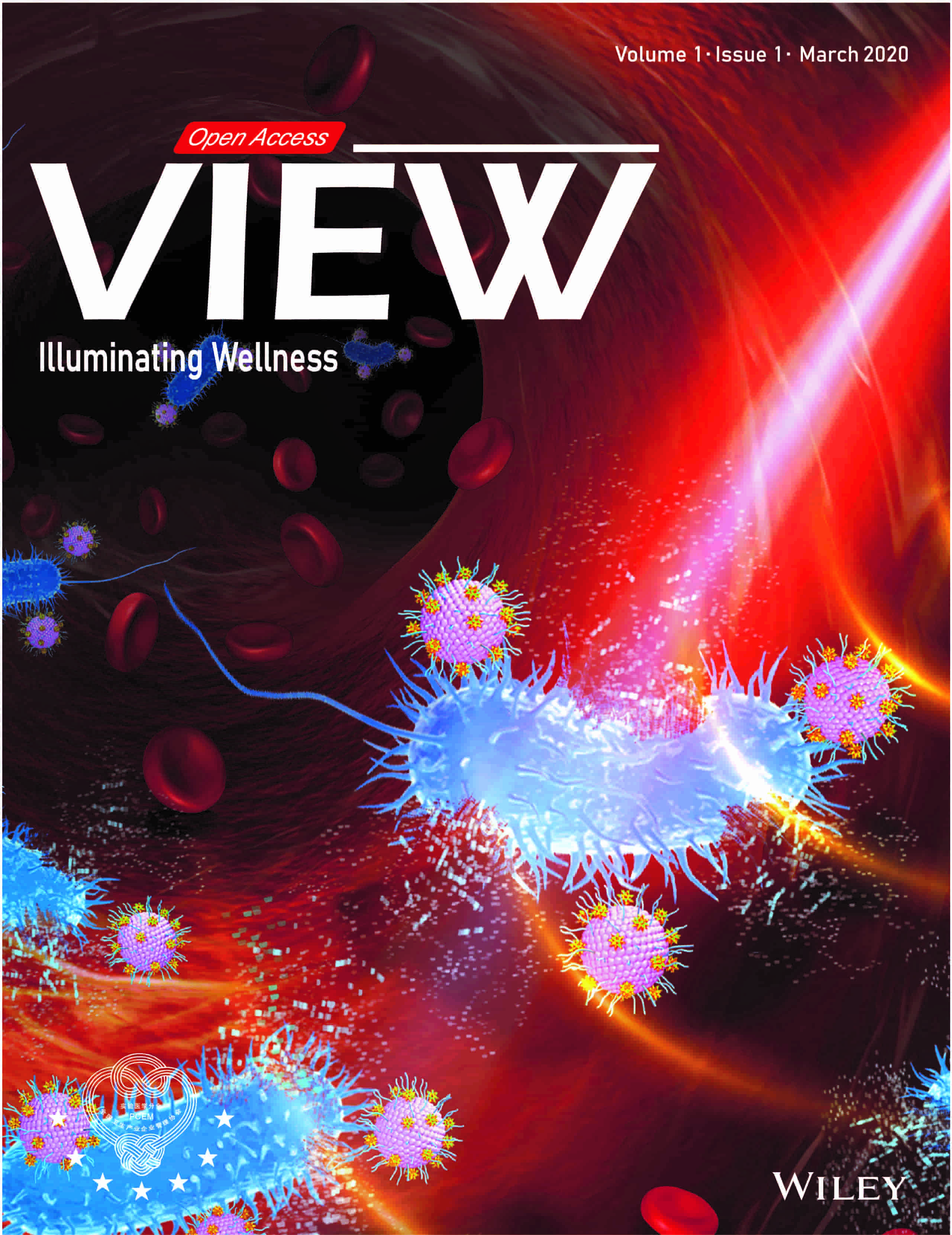自评估预测模型:贝叶斯神经网络在结直肠癌诊断中的应用
IF 8.5
4区 医学
Q1 MATERIALS SCIENCE, BIOMATERIALS
引用次数: 0
摘要
人工智能在癌症预测方面显示出巨大的潜力,但现有模型无法自行估计预测的不确定性。在这里,我们开发了一个贝叶斯神经网络(BNN)模型BNN- crc15,用于预测结直肠癌(CRC)并评估其可靠性。该模型根据27,911名参与者的常规实验室数据进行训练,并提供量化的预测不确定性,从而可以识别出模型有信心的参与者子集,模拟人类从业者的诊断过程。我们的模型在占46.4%的自信参与者组中表现优异(曲线下面积= 0.918),表明仅常规实验室数据就足以对该子集进行准确预测。对于不自信的人群,可以建议进行进一步的高级检查,如结肠镜检查,以获得更准确的预测。此外,我们的模型在所有患者中显示出优越的总体准确率(0.848),优于其他五种传统算法(极端梯度增强、支持向量机、逻辑回归、随机森林和人工神经网络)和粪便免疫化学测试在区分结直肠癌和非结直肠癌方面。这些发现表明我们的BNN-CRC15模型可以作为改善CRC诊断和预防的有价值的工具。本文章由计算机程序翻译,如有差异,请以英文原文为准。

A self-evaluated predictive model: A Bayesian neural network approach to colorectal cancer diagnosis
Artificial intelligence has shown immense potential in cancer prediction, but existing models cannot estimate prediction uncertainty by themselves. Here, we developed a Bayesian neural network (BNN) model, BNN‐CRC15, for colorectal cancer (CRC) prediction while assessing its reliability. The model was trained on routine laboratory data obtained from 27,911 participants and provided quantified prediction uncertainty, allowing identification of a subset of participants in which the model was confident, mimicking the diagnostic process of human practitioners. Our model exhibited superior performance (area under the curve = 0.918) in the confident participant group, which accounted for 46.4% of the patients, indicating that routine laboratory data alone are sufficient for accurate predictions in this subset. For the non‐confident group, further advanced tests, such as colonoscopy, could be recommended to achieve more accurate predictions. In addition, our model demonstrated superior overall accuracy (0.848) in all patients, outperforming other five traditional algorithms (extreme gradient boosting, support vector machine, logistic regression, random forest, and artificial neural network) and fecal immunochemical test in distinguishing CRC from non‐CRC. These findings suggest that our BNN‐CRC15 model could serve as a valuable tool for improving CRC diagnosis and prevention.
求助全文
通过发布文献求助,成功后即可免费获取论文全文。
去求助
来源期刊

VIEW
Multiple-
CiteScore
12.60
自引率
2.30%
发文量
0
审稿时长
10 weeks
期刊介绍:
View publishes scientific articles studying novel crucial contributions in the areas of Biomaterials and General Chemistry. View features original academic papers which go through peer review by experts in the given subject area.View encourages submissions from the research community where the priority will be on the originality and the practical impact of the reported research.
 求助内容:
求助内容: 应助结果提醒方式:
应助结果提醒方式:


